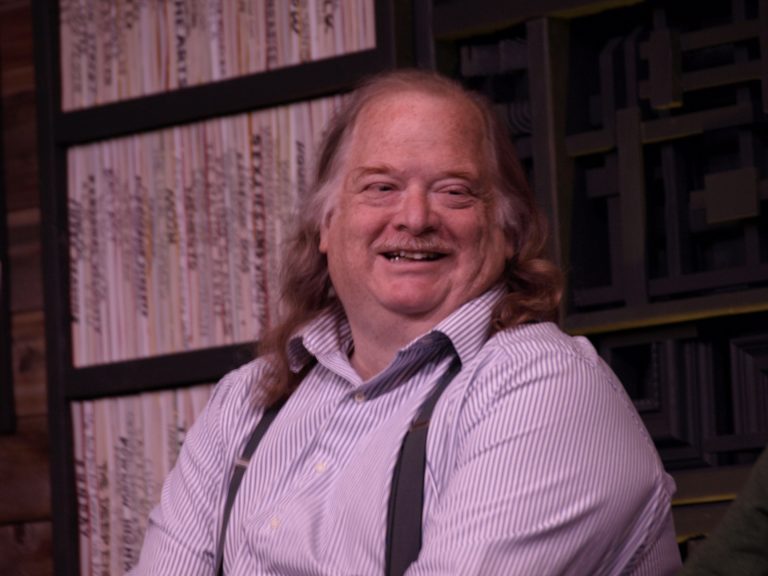
Victoria Penate
As the lights in the Old Little Theater finished dimming in preparation for “City of Gold” to begin, Pulitzer Prize-winning food critic Jonathan Gold briefly greeted the audience and introduced the documentary film about his life and work. He introduced the film and said that while people may argue endlessly about Mexican politics, you’ll have a difficult time finding someone who would pass up a great taco.
Such a concise introduction proved sufficient, as this event — which the College of Creative Studies sponsored as part of their 50th anniversary celebration last Friday — featured a Q&A session in addition to a screening of “City of Gold.”
The film, which premiered in 2015 at the Sundance Film Festival, provides viewers with an informative and vibrant look into Gold’s creative process as a food writer for the Los Angeles Times. A Los Angeles native and adventurous eater, Gold has a uniquely thorough knowledge of the city’s restaurant scene and not in the particular way viewers might expect.
Instead of the haute cuisine and high dining many would imagine someone of Gold’s stature to review, many of the restaurants featured in Gold’s reviews, and in “City of Gold,” are traditional restaurants of various ethnic backgrounds that Gold found in often-passed-over parts of Los Angeles. Gold prefers the spirit and cultural richness that can be experienced in such a restaurant rather than in some of the city’s more high-profile spots.
Gold was not afraid to laugh with the audience at how being a dedicated food critic has permeated his life outside of work. When asked whether he always carefully appraises his food, Gold confirmed that it truly is difficult to put away the mindset of criticism and “just eat.”
“One of the drawbacks is, it’s hard to not just think about food. When I make toast in the morning, I criticize my toast,” Gold lightheartedly responded.
When watching “City of Gold,” it didn’t take long to realize that Gold is highly respected within the world of food criticism and happily welcomed and appreciated by the owners of the establishments he reviews. From a young woman running her family’s Oaxacan restaurant with her siblings, to a mother fulfilling her lifelong restaurant-ownership dreams in Little Ethiopia, people in the Los Angeles traditional food scene are grateful to Gold.
After all, a positive review from Jonathan Gold can breathe life into a struggling but high-quality restaurant in the form of widespread attention from readers who are eager to try out his recommendations.
It occurred to audience members and other food critics featured in the film that, perhaps upon learning that an important food critic as Gold is present, restaurant owners and chefs may serve him differently. This would effectively limit the accuracy of a restaurant’s impression on Gold, rendering his reviews only partially true to the experiences of a regular customer. Gold generally dismissed the potency of its effects and said, “they can only cook as well as they can cook.”
Gold’s attention to detail stood out among the many traits that make him an effective, successful food critic. This attentiveness is clear to anyone who watches “City of Gold” or has the opportunity to hear Gold speak about his work. He has a deep connection with his subject matter, and he cultivated this connection through countless hours of research and numerous re-visits to restaurants he featured in his writing.
To Jonathan Gold, putting thought into food and its surrounding culture is about more than just its ingredients combined. To conclude his conversation at the Old Little Theater, he said, “Dinner shouldn’t be a political act, but dinner is also the most political act in a way. It’s a way of coming together; it’s a way of finding commonalities.”










